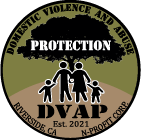Coming out of an abusive situation, whether it be emotional, physical, or psychological, is one of the most courageous acts a person can take. Survivors often face an overwhelming mix of emotions as they begin navigating a new path toward independence. Healing from trauma takes time, courage, and intentional steps toward reclaiming your life and confidence. This blog is designed to offer practical guidance and encouragement to survivors as they build a new life after abuse.
We’ll explore actionable steps to foster independence, rebuild confidence, and connect with resources to strengthen your emotional resilience. Whether you’re an abuse survivor or someone supporting a loved one, these steps are aimed to empower and inspire growth during this pivotal stage of life.
Understanding the Importance of Healing
Why Healing is the Foundation of a New Life
Healing is not about erasing the pain, but about learning how to manage it while regaining control over your life. The scars left by abuse can impact your mental health, self-esteem, and personal relationships. Prioritizing your well-being by addressing these wounds is the first, and most important, step toward building a stable and fulfilling life.
Some key ways to initiate healing:
- Therapy and professional support: Seeking out mental health professionals, especially those versed in trauma recovery, can help you make sense of your experiences and reframe negative thoughts.
- Practicing mindfulness and self-care: Grounding techniques like journaling, meditation, and exercise can help ease anxiety and reconnect you with your body and mind.
- Learning to forgive yourself: Many survivors carry feelings of guilt or self-blame. Recognize that abuse is never your fault and grant yourself the grace to move forward.
Building Independence
Creating a Strong Support Network
Surrounding yourself with trusted individuals is crucial to rebuilding your life. Whether it’s friends, family, counselors, or support groups, having people who listen, understand, and encourage you makes the process easier.
Steps to strengthen your support system:
- Identify your inner circle: Share your goals and struggles with people you trust.
- Seek support groups for survivors: These are invaluable as they provide empathy and shared experiences.
- Set boundaries to protect your energy: Walk away from relationships that drain or hinder your recovery.
Finding Financial Freedom
Financial independence can pave the way to emotional and physical independence. For many survivors of abuse, regaining control over finances is a key milestone.
Here’s how to start:
- Set financial goals: Begin by budgeting for critical expenses like rent, food, and transportation. Use apps or spreadsheets to track expenses meticulously.
- Pursue job opportunities and skill-building: Update your resume or gain certifications to strengthen your ability to secure well-paying roles.
- Access resources: Look for community programs or non-profits offering financial assistance or job training for abuse survivors.
Establishing a Safe Environment
Creating a living space that’s yours—not attached to the location or memory of abuse—is a pivotal step. Your environment should inspire safety, comfort, and a sense of ownership.
- Start small: Personalize your space with items or photos that make it feel your own.
- Prioritize physical safety: Secure locks, alarms, or take other measures to ensure your home feels like a fortress of peace.
- Reach out for help if finding a safe space is challenging. There are resources specifically designed to assist survivors in transitional housing.
Rebuilding Confidence
Small Wins Lead to Big Transformations
Self-confidence can take a serious hit after going through abuse, but rebuilding it in small, manageable steps is incredibly empowering. Celebrate every accomplishment, no matter how small it feels.
- Set achievable challenges: Whether it’s cooking a new recipe, learning a skill, or completing a workout, achievements matter.
- Track your progress: Keep a journal to remind yourself of how far you’ve come.
- Focus on affirmations: Positive self-talk can reshape your inner narrative.
Rediscovering Your Identity
Abuse often strips survivors of their sense of identity. One powerful step is to reconnect with your authentic self and interests.
- Explore hobbies or passions you once loved or have always wanted to try, like painting, hiking, or dancing.
- Volunteer for causes aligning with your values, which can cultivate new friendships and purpose.
- Focus on self-expression through fashion, writing, or other creative outlets that showcase YOU.
Seeking Professional Development
Confidence often grows when you feel a sense of accomplishment. Consider pursuing professional or educational goals that excite you. Whether it’s going back to school, learning a new trade, or transitioning to a new industry, each step forward strengthens your independence.
Finding Strength in Community
Connect With Others Who’ve Walked the Same Path
One of the most empowering steps is recognizing you are not alone. Millions of survivors have built fulfilling lives after experiencing abuse, and connecting with them fosters inspiration and hope.
- Engage in online or in-person communities for survivors.
- Read success stories that resonate with your own experiences.
- Attend workshops or events focused on empowerment and personal growth.
Final Thoughts
Moving forward after abuse is not easy, but every step you take is a testament to your resilience and strength. Prioritize your well-being, allow yourself to heal at your own pace, and take small steps toward becoming self-reliant and confident. One day, you’ll look back and see how far you’ve come.
Disclaimer: This blog post provides general information about domestic abuse. It does not provide legal advice. Victims should consult with a legal professional for advice related to their specific situation.
Are You Experiencing Domestic Violence or Abuse? DVAP Is Here To Help
Domestic Violence and Abuse Protection, Inc. is a non-profit organization committed to protecting the victims of domestic abuse. When restraining orders are not enough, we are there to provide the determined protection you deserve. We are located at 3900 Orange St. Riverside, CA. Call us at (951)-275 8301 (24 hours). Alternatively, you can email us at admin@dvapriverside.org






